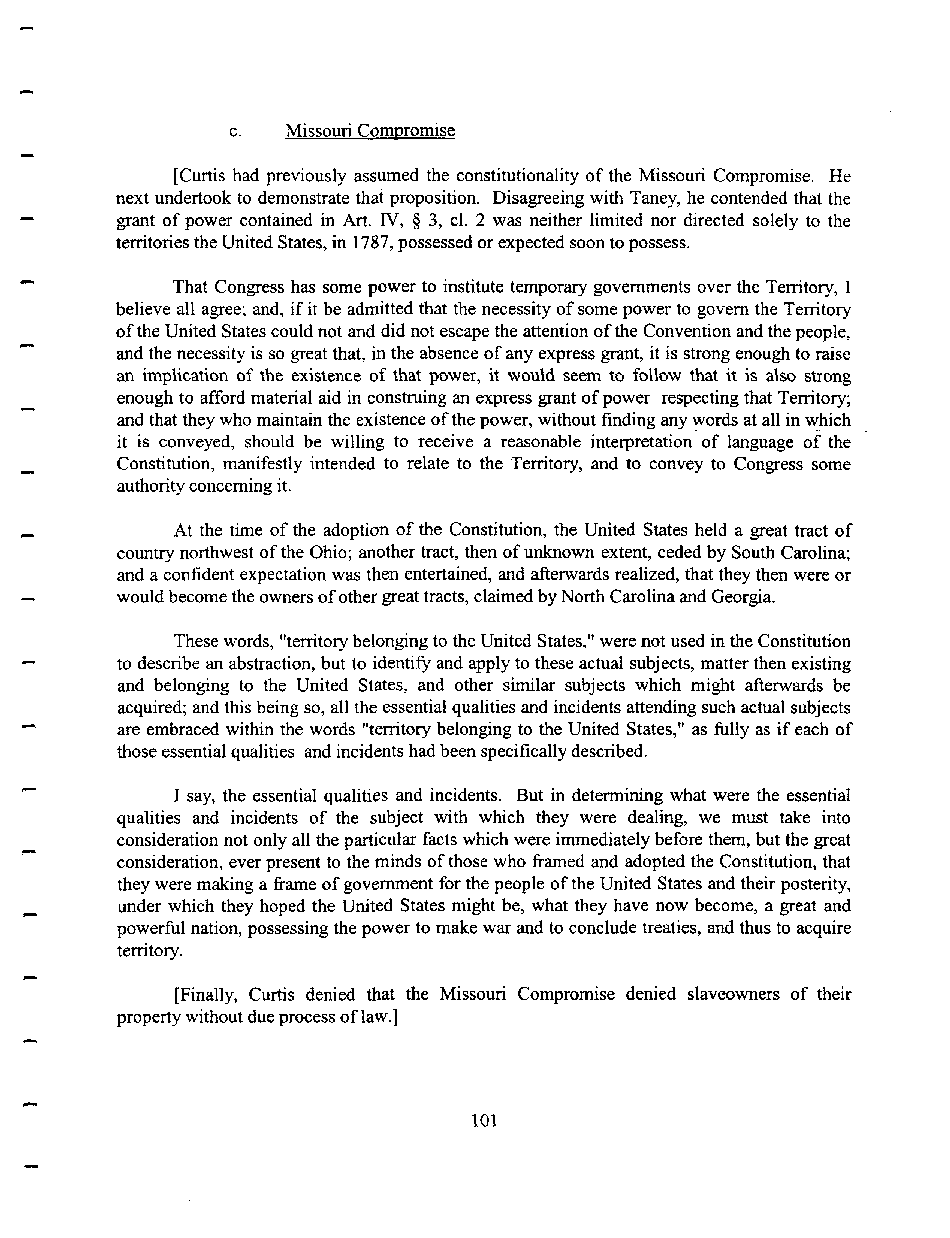|
c. Missouri Compromise
[Curtis had previously assumed the constitutionality of the Missouri Compromise. He
next undertook to demonstrate that proposition. Disagreeing with Taney, he contended that the
grant of power contained in Art. IV, § 3, cl. 2 was neither limited nor directed solely to the
territories the United States, in 1787, possessed or expected soon to possess.
That Congress has some power to institute temporary governments over the Territory, I
believe all agree; and, if it be admitted that the necessity of some power to govern the Territory
of the United States could not and did not escape the attention of the Convention and the people,
and the necessity is so great that, in the absence of any express grant, it is strong enough to raise
an implication of the existence of that power, it would seem to follow that it is also strong
enough to afford material aid in construing an express grant of power respecting that Territory;
and that they who maintain the existence of the power, without finding any words at all in which
it is conveyed, should be willing to receive a reasonable interpretation of language of the
Constitution, manifestly intended to relate to the Territory, and to convey to Congress some
authority concerning it.
At the time of the adoption of the Constitution, the United States held a great tract of
country northwest of the Ohio; another tract, then of unknown extent, ceded by South Carolina;
and a confident expectation was then entertained, and afterwards realized, that they then were or
would become the owners of other great tracts, claimed by North Carolina and Georgia.
These words, "territory belonging to the United States," were not used in the Constitution
to describe an abstraction, but to identify and apply to these actual subjects, matter then existing
and belonging to the United States, and other similar subjects which might afterwards be
acquired; and this being so, all the essential qualities and incidents attending such actual subjects
are embraced within the words "territory belonging to the United States," as fully as if each of
those essential qualities and incidents had been specifically described.
I say, the essential qualities and incidents. But in determining what were the essential
qualities and incidents of the subject with which they were dealing, we must take into
consideration not only all the particular facts which were immediately before them, but the great
consideration, ever present to the minds of those who framed and adopted the Constitution, that
they were making a frame of government for the people of the United States and their posterity,
under which they hoped the United States might be, what they have now become, a great and
powerful nation, possessing the power to make war and to conclude treaties, and thus to acquire
territory.
[Finally, Curtis denied that the Missouri Compromise denied slaveowners of their
property without due process of law.]
101
�
|

